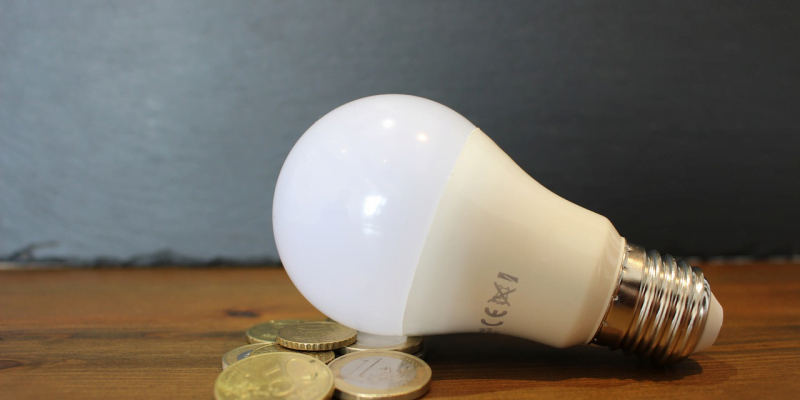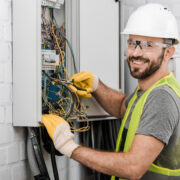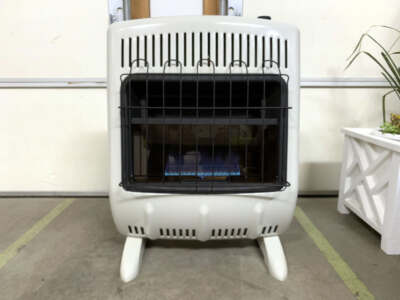Misuse of energy increases energy costs in the form of fuel and energy bills. Poor energy consumption results in a high carbon footprint, which increases the risk of climate change. As populations grow, energy inefficiency leads to reduced supply, causing increased energy rates during peak hours. Poor energy consumption also negatively impacts business success by increasing energy bills instead of leveraging profits.
However, efficient energy use is a fast and effective way to save money due to reduced utility bills, reduce greenhouse gas emissions, meet the growing energy demand, and other benefits. Here are ways to save your energy bill.
Install energy-efficient windows
Windows can significantly add to your heating bill through heat loss. To prevent heat loss, consider replacing your singles-pane windows with double-pane ones. Besides increasing your home’s value and security, energy-efficient windows from Landmark, new windows for your home prevent heating and cooling from escaping, increasing energy efficiency. If you live in cold regions, get gas-filled windows with Low-E coating to lower your heating expenses. Your home window shades, awnings, shutters, and screens add an insulation layer between your home and outdoor temperature, reducing energy consumption.
Use programmable thermostats
Smart thermostats are designed to automatically reduce energy consumption when heating and cooling features aren’t used, saving energy. They help cut down home energy costs when homeowners are not around and when businesses are closed, like during the weekends and overnight. Smart thermostats are set to reduce heat, turn off lights when not in use, turn on lights, and increase the heat when needed.
Use smart power strips
Energy consumed by standby electronics when they’re turned off wastes a lot of energy. Advanced power strips shut off electronics when not in use, saving energy. Using remote switches or a master device status, you can set an advanced power strip to turn off at a predetermined time.
Conduct an energy audit
Energy auditing is a tool that helps identify potential energy efficiency and possible measures. An energy audit aims at understanding energy usage within a process or a system and where it’s wasted.
It also helps you find potential measures for energy loss reduction and overall performance improvement – you can save money on your electricity bills from installing solar panels to spending less time in the shower, and any way in between.
Energy audits involve four main stages: energy use review, site assessment, data analysis, and audit reporting. You may conduct an energy audit professional or do it yourself.
Cut draughts
Draught cutting involves the prevention of heat escaping through unwanted window and door gaps. For your doors and windows, use draught-proofing strips around the openings to retain heat. If you don’t use the fireplace, consider blocking the chimney using an inflatable pillow and use a draught-proofing foam strip for your loft hatches. This will ensure the sealing of all the gaps, promoting heat retention.
Invest in home insulation
Proper home insulation provides heat flow resistance, lowering your heating and cooling costs. When homes are not insulated, heat finds ways to escape, making the home uncomfortable. When you insulate, a barrier between your home’s interior and exterior is created, slowing the entry and exit of heat.
To determine how much insulation you need, consult a certified insulation expert and conduct an energy performance evaluation. Additionally, ensure that your walls and ceiling are adequately insulated to enhance heat retention and save energy costs. The types of insulation to consider for your home include insulation batts, blown-in insulation, insulation rolls, foam board insulation, and spray foam insulation.
Buy energy-efficient appliances
When buying electrical appliances, don’t forget to check their annual operating cost. Knowing the annual operating cost helps determine their sustainability and impact on your utility bills. Although the purchase cost may be high, the long-term effect on your utility bills is worth it. When looking for an energy-efficient appliance, check the energy star label, which is a government assurance that it’s energy-efficient even when on standby mode. Ensuring that all your devices are energy star-labeled will help save a significant amount of the energy bill.
Lower your water heating expenses
Water heating contributes majors to the overall energy bill. Besides buying an energy-efficient water heater, you can lower your thermostat level, use less hot water or insulate your water heater and your hot and cold-water pipes. The ideal water heater should not only meet your needs but be energy efficient too.
Weatherize your home
Walk around your home and look for air leaks and weatherize them. Ascertain that there aren’t any cracks or openings between the wall and vent, door frames, or windows. To seal air leaks on walls and window frames, consider caulking. For the moving parts like doors and windows, apply weather stripping. Sufficiently insulate your attic to ensure heat doesn’t escape through even the smallest openings, reducing the heating bill.
Endnote
Practicing energy efficiency is an energy consumption best practice that ensures proper energy usage. Besides lowering your energy bill, energy efficiency has other benefits, which are environmental and economic. Use these tips to improve your energy consumption for lower energy bills.










Comments